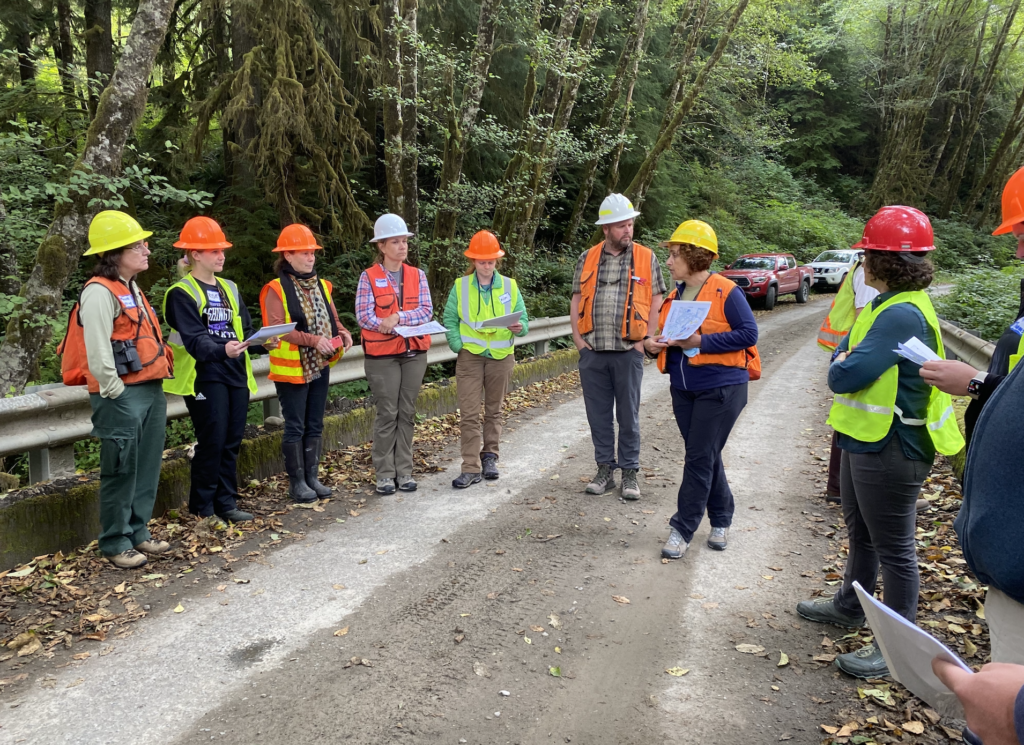Learning Groups
The Type 3 Watershed Experiment has many active learning groups that are comprised of researchers, managers, stakeholders, and/or tribes. Oftentimes, learning groups include external researchers, subject matter experts, those with a personal or professional connection to the topic, or others that are just interested in the group. All are welcome! These groups are focused on a specific topic connected to the T3 Experiment and work towards shared goals while learning together. Focal projects differ between groups. For example, some have created sub-study plans that will be implemented alongside the T3 Experiment, some are developing monitoring protocols, and others have applied for new grants to support their work. Below is a description of each of the learning groups. If you would like to join a group or want additional information, please contact Tracy Petroske at Tracy.Petroske@dnr.wa.gov. In addition, below is a calendar showing all of the upcoming meetings with links to attend virtually. Please feel free to join any upcoming meeting.
Learning Groups:
Aquatics Learning Group:
This group is interested in learning more about and supporting the T3 stream and riparian research. Current aquatics work in the T3 includes: stream habitat surveys, riparian vegetation surveys including leaf litter, fish population surveys, analysis of fish diet, surveys of stream invertebrates, algae and periphyton, and modeling the trophic web.
Carbon Learning Group:
This group is interested in integrating carbon-related research and planning with other regional forests (e.g., Elliot State Forest). In particular, studying how the T3 can add to data for carbon cycle modeling inputs. This group would also like to advance carbon accounting at the timber sale scale rather than only at landscape scale and how to best monetize carbon offsets.
Cedar Learning Group:
This group has already created a sub-study focused on cedar regeneration that will be implemented with the T3 Experiment. In addition to assisting with future needs of that project, they will also work on identifying cedar across the landscape using remote sensing methodologies.
Economics and Operations Learning Group:
This group will investigate the economic and operational challenges of various forest management practices, such as harvest, planting and vegetation control, which implement the T3 experimental prescriptions. Data gaps in current economic models will be identified (e.g., changing climate, or differing harvest techniques).
History Learning Group:
This group meets monthly to establish the historical context for the 16 experimental watersheds in the T3 study. Members identify and gather historical data including photography, land use and timber sale records and oral histories. This will help interpret results from the various experimental prescriptions underway.
Invasive Species Learning Group:
This group is considering questions such as how soil composition changes after herbicide application, what simple practices can reduce spread of weeds (e.g., mowing in different patterns), and whether remote sensing be used to track understory response to treatments. This group is identifying several auxiliary T3 research projects to address those questions.
Tribal Learning Group:
Several tribes have ancestral, ceded, and/or Usual and Accustomed lands that overlap with the T3 study area. In addition, these Tribes (as well as many others in the region) have place-based knowledge of these ecosystems and may have an interest in the research questions, methodology, and data from this study. Their input is vital to ensure that the study is meeting their needs and that key questions are addressed. If you have questions regarding the tribal learning group, please reach out to Courtney Bobsin at cbobsin@uw.edu.
